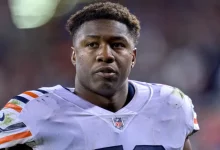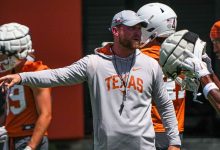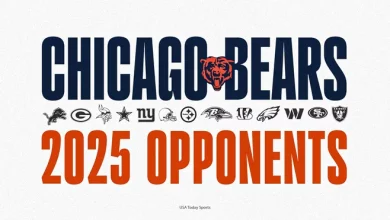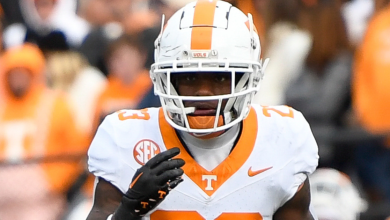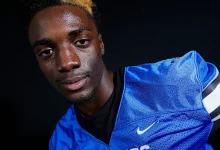Georgia President Jere Morehead and Athletic Director Josh Brooks confirmed at the spring athletic board meeting that Georgia plans to fully comply with the new rules proposed in the potential House settlement.
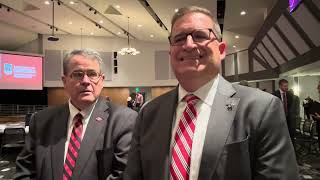
GREENSBORO, Ga. — At the recent spring athletic board meeting, University of Georgia President Jere Morehead and Athletic Director Josh Brooks delivered key insights regarding the future of Georgia athletics. Central to their message was a clear and unequivocal commitment: Georgia intends to fully comply with the new rules put forth by the potential NCAA and House settlement concerning athlete compensation and name, image, and likeness (NIL) regulations.
This announcement signals a pivotal moment for the Georgia athletic program as it navigates a rapidly changing landscape in college sports governance. With ongoing reforms shaping how universities handle athlete benefits, compliance, and recruitment, Georgia’s leadership is positioning the institution to not only adapt but thrive under the new framework.
The Context: A Changing College Sports Environment
Over the past few years, college athletics has experienced seismic shifts, particularly regarding student-athlete rights and compensation. The traditional NCAA model, which barred athletes from profiting off their name, image, and likeness, has given way to new realities. Following various legal challenges and legislative efforts, including ongoing federal court cases and potential Congressional settlements, the NCAA has moved toward permitting athletes to earn money from endorsements, sponsorships, and other NIL opportunities.
In this environment, the so-called “House settlement” refers to a prospective agreement negotiated between the NCAA and the U.S. House of Representatives aimed at creating a standardized, nationwide framework for NIL activities and athlete compensation. This settlement, if ratified, would supersede the patchwork of state laws and individual university policies that currently govern athlete compensation.
Georgia’s Leadership Speaks: Commitment to Compliance and Integrity
At the spring athletic board meeting, President Morehead and Athletic Director Brooks emphasized Georgia’s proactive approach to this evolving regulatory landscape. Both leaders stressed that compliance with the forthcoming House settlement rules is not optional but essential to maintaining the university’s competitive and ethical standing.
President Jere Morehead framed Georgia’s strategy as one grounded in institutional integrity and the holistic welfare of its student-athletes. “Our priority is always to support our student-athletes while ensuring that we uphold the highest standards of compliance and governance,” Morehead said. He acknowledged the complexity of the new NIL regulations but underscored that Georgia is committed to navigating these challenges with transparency and fairness.
Athletic Director Josh Brooks elaborated on operational steps underway to prepare for compliance. Brooks described investments in compliance infrastructure, staff training, and athlete education programs designed to equip Georgia’s teams with the knowledge and tools needed to operate within the new rules. “We are actively engaging with our coaches, compliance officers, and legal experts to make sure that Georgia is not just ready to meet these new standards but to lead by example,” Brooks stated.
What Are the Key Provisions of the Potential House Settlement?
Although the settlement details remain subject to final negotiations, several anticipated provisions are already shaping how institutions like Georgia are preparing:
- Uniform NIL Rules Nationwide: The settlement aims to create consistent standards for NIL compensation across all states and conferences, eliminating conflicting state laws that currently complicate compliance.
- Strict Compliance and Reporting Requirements: Universities will be required to establish systems for monitoring and reporting NIL deals to ensure transparency and prevent improper inducements or recruiting violations.
- Prohibition of Pay-for-Play Schemes: While athletes can profit from NIL opportunities, the settlement will continue to prohibit direct payment from universities or boosters tied to athletic performance or recruiting.
- Education and Support Programs: Institutions must provide comprehensive education on NIL contracts, financial literacy, and legal considerations to help athletes make informed decisions.
- Enforcement Mechanisms: Clear penalties and enforcement protocols will be defined for violations, increasing accountability for both athletes and programs.
Georgia’s leadership expressed confidence in their ability to meet these requirements due to investments already made in compliance and athlete support services.
Georgia’s Preparations: Building Infrastructure and Education
To align with the anticipated House settlement, Georgia has accelerated efforts across multiple fronts:
- Compliance Office Expansion: The Georgia Athletic Department has expanded its compliance team to include specialists focused exclusively on NIL monitoring. This team is tasked with reviewing athlete contracts, ensuring accurate reporting, and coordinating with NCAA officials and legal counsel.
- Athlete Education Programs: Recognizing the complexity of NIL deals, Georgia has launched workshops and seminars to educate athletes about contract negotiation, tax implications, financial planning, and ethical considerations. These initiatives are designed to empower athletes to navigate opportunities safely and responsibly.
- Collaboration with Coaches and Staff: Georgia has implemented ongoing training sessions for coaches, recruiters, and support staff to ensure everyone understands the boundaries and legal frameworks established by the potential settlement.
- Technology and Tracking Tools: The university is adopting digital platforms that track NIL transactions in real-time, offering transparency and ease of reporting. These tools will help Georgia remain compliant and reduce administrative burdens.
The Athlete Experience: Benefits and Challenges
For Georgia’s student-athletes, the evolving NIL landscape offers exciting opportunities alongside new responsibilities. Being able to capitalize on personal brands through endorsements, social media promotions, autograph signings, and other ventures can provide substantial financial benefits, helping athletes support themselves and their families.
Georgia’s leadership emphasized that while these opportunities are positive, the university is equally focused on protecting athletes from exploitation or entering into contracts that could jeopardize their eligibility or long-term well-being.
“We want to see our athletes succeed both on and off the field,” said Morehead. “That means providing the resources to help them make smart decisions and avoid potential pitfalls.”
Athletes are encouraged to work closely with Georgia’s compliance staff and legal advisors before finalizing any deals, ensuring full alignment with NCAA rules and university policies.
Broader Impact on Recruiting and Competitive Balance
One topic of significant interest among Georgia stakeholders is how the new NIL regulations and House settlement will impact recruiting and competitive balance. NIL has already changed recruiting dynamics nationally, with schools in major conferences like the SEC using their market size and media exposure to offer athletes lucrative endorsement potential.
Georgia’s leadership acknowledged these realities but underscored a commitment to maintaining fairness and integrity. Brooks noted, “While NIL opportunities will inevitably factor into recruiting conversations, Georgia’s focus remains on building a program based on development, culture, and competitive excellence.”
The national framework expected from the House settlement is seen as a positive step toward leveling the playing field by setting clear, enforceable guidelines and preventing under-the-table inducements.
Challenges Ahead and Georgia’s Vision for the Future
Despite their optimism, Morehead and Brooks recognized that challenges remain. The NIL space is still new and evolving rapidly, with ongoing debates about amateurism, athlete compensation, and the role of universities.
Georgia plans to remain agile, monitoring legislative updates, NCAA decisions, and legal developments closely. The university is committed to continuing dialogue with athletes, alumni, boosters, and other stakeholders to refine policies and practices.
Looking beyond NIL, the board meeting also touched on Georgia’s broader athletic ambitions, including investments in facilities, academic support, and student-athlete wellness programs. These initiatives are part of a comprehensive vision to elevate the Bulldogs’ standing in collegiate sports while prioritizing holistic athlete development.
The Role of Transparency and Accountability
A key takeaway from the meeting was Georgia’s emphasis on transparency and accountability. The leadership expressed a desire to serve as a model for how institutions can successfully integrate new NIL regulations while upholding NCAA rules.
This commitment extends beyond compliance to fostering an environment where athletes feel supported and informed. Open communication lines between athletes, coaches, compliance officers, and university administration are being strengthened.
Moreover, Georgia intends to share best practices with peer institutions and participate actively in national discussions shaping the future of college athletics governance.
Community and Alumni Engagement
Georgia’s evolving approach to NIL and compliance has also resonated with the wider Bulldog community. Alumni and boosters have expressed interest in supporting athletes within the new legal framework, eager to contribute to programs that enhance athlete opportunities without risking violations.
The athletic department is developing guidelines and educational materials for supporters to understand their role in this new era, ensuring contributions and endorsements align with compliance standards.
Conclusion: A Forward-Looking Commitment
The spring athletic board meeting in Greensboro marked a defining moment for Georgia athletics. By publicly committing to abide by the new rules proposed in the potential House settlement, Georgia has signaled a readiness to embrace change thoughtfully and strategically.
President Jere Morehead and Athletic Director Josh Brooks outlined a comprehensive plan that balances compliance, athlete empowerment, competitive integrity, and institutional values. With expanded compliance infrastructure, robust athlete education, and transparent governance, Georgia is positioning itself to lead in the evolving landscape of college sports.
As the NCAA, Congress, and courts finalize the new framework for athlete compensation and NIL, Georgia’s commitment provides reassurance to fans, athletes, and stakeholders that the Bulldogs will continue to compete at the highest level — ethically, responsibly, and successfully.

